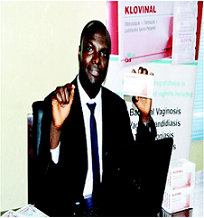To some of us, reading is fun, while others regard it as a burden. It has been observed that one can be engrossed by a book, to the extent of temporarily losing touch with his immediate environment, thereby enjoying respite from life’s daily stress.
According to Medical News Today report, researchers are finding that reading may offer some very real benefits for health and well-being. More than 75 percent of American adults report reading at least one book in the past year.
In August, Medical News Today reported on a study published in the journal Social Science & Medicine that claimed reading books could increase lifespan.
Led by researchers from Yale University School of Public Health, the study revealed that adults who reported reading books for more than 3 ½ hours per week were 23 percent less likely to die over 12 years of follow-up, compared with those who did not read books.
While the researchers were unable to pinpoint the precise mechanisms by which reading may boost longevity, they pointed to previous studies that found reading can increase connectivity between brain cells, possibly lowering the risk of neurodegenerative diseases that can shorten lifespan.
Given that more than 75 percent of American adults have read at least one book in the past year, any reports of the associated health benefits are likely to be welcome news.
If you are in the remaining 25 percent of people who find reading a chore, perhaps learning more about how it could improve health and well-being will encourage you to shun the TV for the library.
1) Reading can reduce stress
Stress is believed to contribute to around 60 percent of all human illness and disease; it can raise the risks of stroke and heart disease by 50 percent and 40 percent, respectively.
Of course, day-to-day life makes it impossible to eliminate stress completely, but there are things we can do to reduce stress and stop it from becoming a serious health issue. One strategy is reading.
According to a 2009 study conducted by the University of Sussex in the United Kingdom, reading can reduce stress levels by as much as 68 percent, even more than listening to music or going for a walk.
Study co-author Dr. David Lewis, a neuropsychologist at Mindlab International at Sussex, and colleagues found that participants who engaged in just 6 minutes of reading – whether a newspaper or a book – experienced a slowed heart rate and reduced muscle tension.
“It really doesn’t matter what book you read, by losing yourself in a thoroughly engrossing book, you can escape from the worries and stresses of the everyday world and spend a while exploring the domain of the author’s imagination.
This is more than merely a distraction but an active engaging of the imagination, as the words on the printed page stimulate your creativity and cause you to enter what is essentially an altered state of consciousness.”
These findings are unlikely to come as a surprise to the bookworms out there; a study conducted by researchers from the University of Liverpool in the U.K. earlier this year found that 38 percent of adults class reading as their “ultimate stress remedy.”
“Whilst the cumulative societal benefits of reading have been widely acknowledged, it’s important also to recognize the gains to be had from reading on our personal health and well-being,” notes study researcher Dr. Josie Billington.
2) Reading can slow cognitive decline
As we age, our brain slows down, and cognitive tasks that we may have once found easy, such as remembering a name or a house number, may become more challenging.
But according to a number of studies, reading could help slow down or even prevent cognitive decline, and it may even help stave off more severe forms of cognitive impairment, such as Alzheimer’s disease.
Studies have shown reading may slow cognitive decline.
In 2013, a study by researchers from Rush University Medical Center in Chicago, IL – published in the journal Neurology – found that reading and other mentally stimulating activities may slow dementia.
For their research, lead author Robert S. Wilson, of the Rush Alzheimer’s Disease Center, and team enrolled 294 adults of an average age of 89.
Every year for an average of 6 years before their death, the participants completed a number of memory and thinking tests. They also completed a questionnaire detailing any mentally stimulating activities they engaged in during childhood, adolescence, middle age, and in later life.
From analyzing the brains of participants after their death, the researchers found that those who engaged in reading, writing, and other mentally stimulating activities in early and late life were less likely to show physical evidence of dementia, such as brain lesions, plaques, and tangles.
“Based on this, we shouldn’t underestimate the effects of everyday activities, such as reading and writing, on our children, ourselves and our parents or grandparents,” Wilson comments.
The results support those of an earlier study published in the Proceedings of the National Academy of Sciences, which found older adults who read, play chess, and participate in other mentally challenging activities were 2 ½ times less likely to develop Alzheimer’s.
3) Reading can improve sleep
Smartphones have become our regular bedtime buddy. Where’s the harm in having a quick check of Facebook before lights out? According to research, it could wreak havoc for your sleep.
A study published earlier this year in the journal Social Science & Medicine found that using a smartphone just before bedtime is linked to shorter sleep duration and poorer sleep quality.
This is primarily because the light emitted from the devices reduces production of melatonin in the brain – a hormone that tells us when to sleep.
So what better excuse to swap your smartphone for a book before bedtime; according to the Mayo Clinic, creating a bedtime ritual – such as reading a book – can “promote better sleep by easing the transition between wakefulness and drowsiness.”
4) Reading can enhance social skills
Some people view books as a way to escape the real world and the people in it, but research has shown that when it comes to social skills, reading may have its uses.
A 2013 study published in the journal Science, for example, found that individuals who read fiction may have better “theory of mind” – that is, the ability to understand that people’s beliefs, desires, and thoughts are different to their own.
Further cementing the link between reading and improved social skills, a study reported by MNT earlier this year found that individuals who read fiction scored much higher on tests of empathy than those who read nonfiction.
Study author Keith Oatley, of the Department of Applied Psychology and Human Development at the University of Toronto, Canada, suggests that fiction allows the reader to engage with the characters, which may lead to increased empathy with others in reality.
“The most important characteristic of being human is that our lives are social,” says Oatley. “What’s distinctive about humans is that we make social arrangements with other people – with friends, with lovers, with children – that aren’t pre-programmed by instinct. Fiction can augment and help us understand our social experience.”
5) Reading may boost intelligence
“The more that you read, the more things you will know. The more that you learn, the more places you’ll go,” American author and illustrator Dr. Seuss once wrote, and it seems he was right.
Studies have shown that reading can increase an individual’s vocabulary, which has been linked with greater intelligence.
Research has linked stronger reading skills at a younger age with increased intelligence.
What is more, it appears that the stronger a person’s early reading skills, the more intelligent they are likely to become. A 2014 study published in the journal Child Development found that children with better reading skills by the age of 7 years scored higher on IQ tests than those with weaker reading skills.
“If, as our results imply, reading causally influences intelligence, the implications for educators are clear,” says study leader Stuart J. Ritchie, of the University of Edinburgh in the U.K.
“Children who don’t receive enough assistance in learning to read may also be missing out on the important, intelligence-boosting properties of literacy.”
For those of you who are avid readers, you can be safe in the knowledge that your pastime is providing a wealth of benefits for your health and well-being.
If you are still not convinced about dropping Breaking Bad and breaking in a novel, we’ll leave you with a quote from French writer and philosopher Voltaire:
“Let us read, and let us dance; these two amusements will never do any harm to the world.”
Written by Honor Whiteman
































